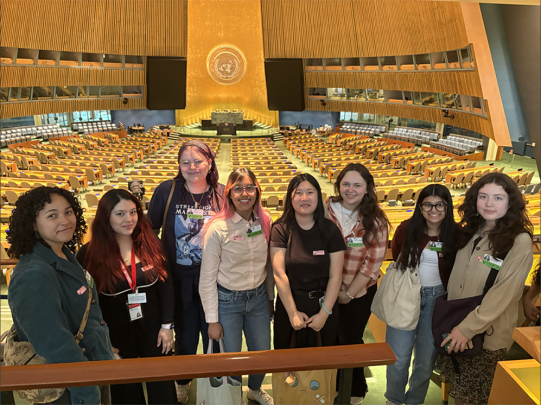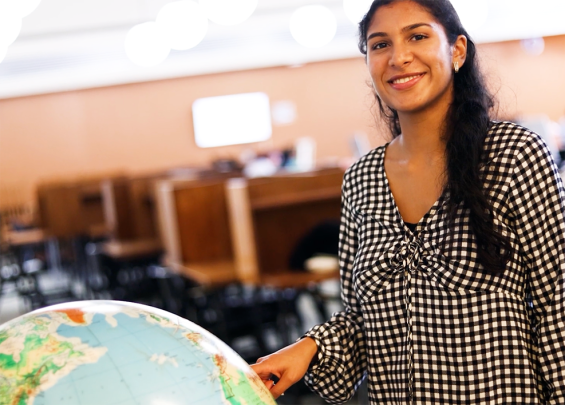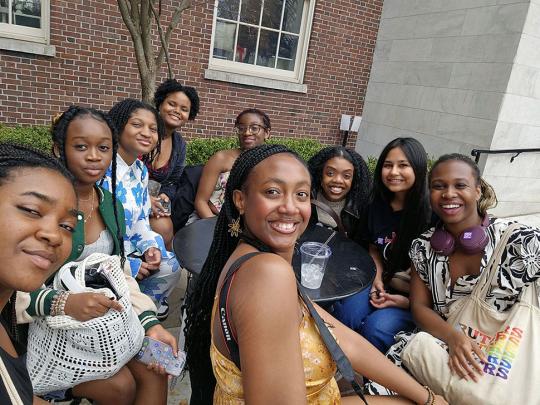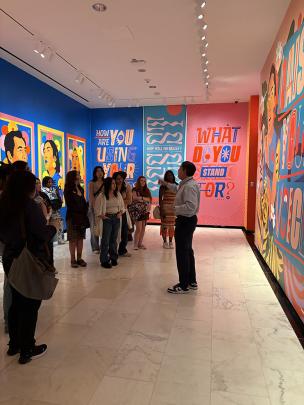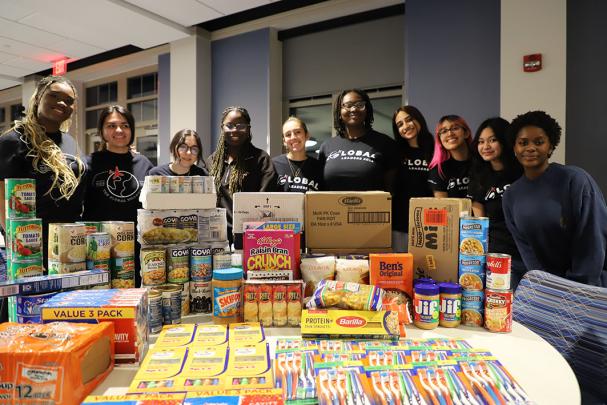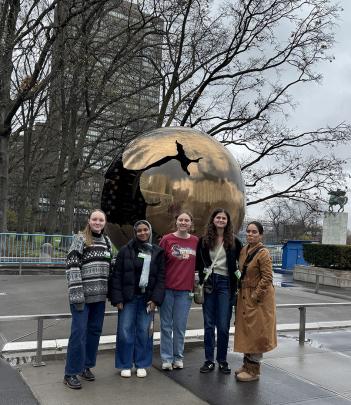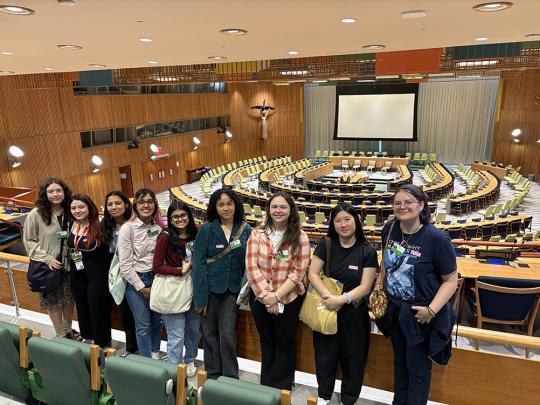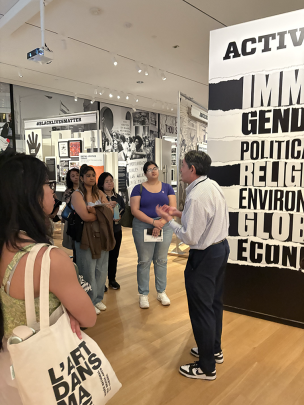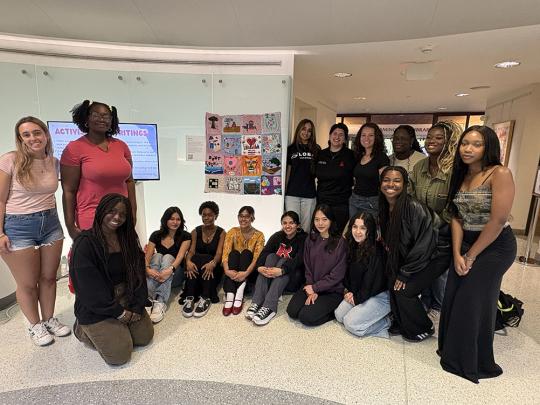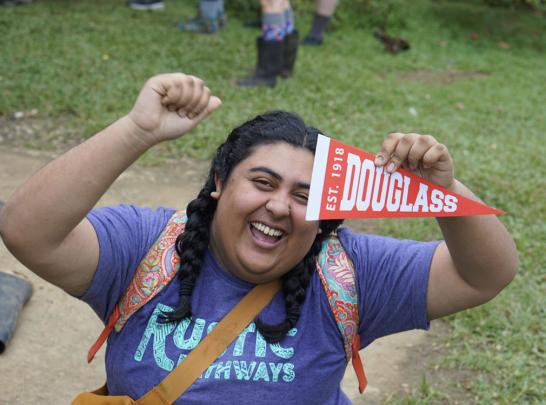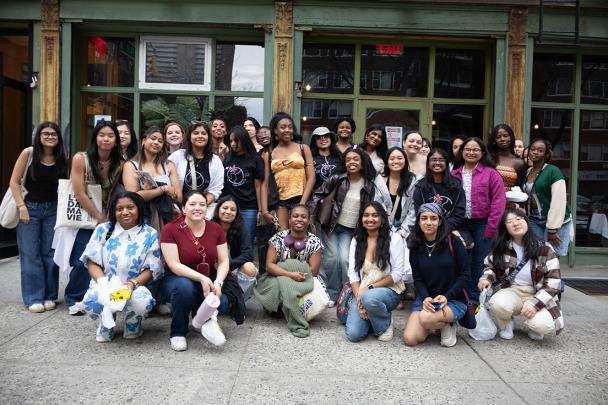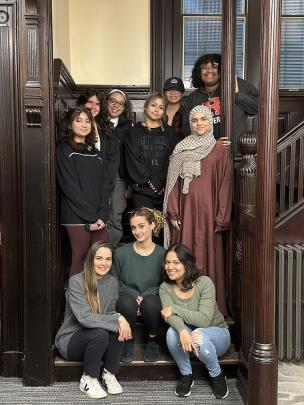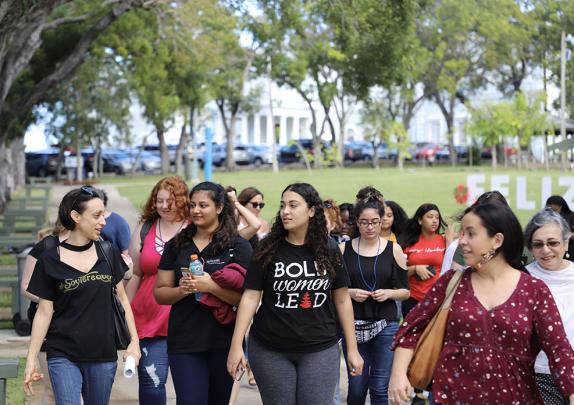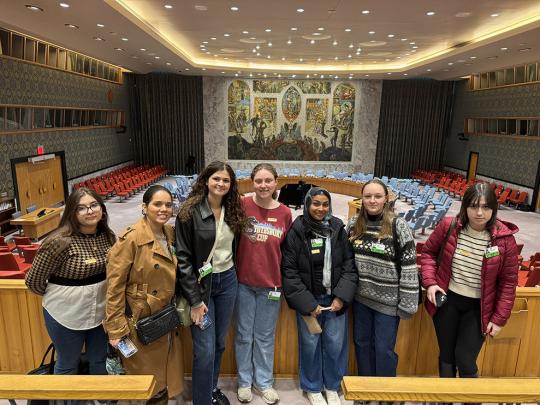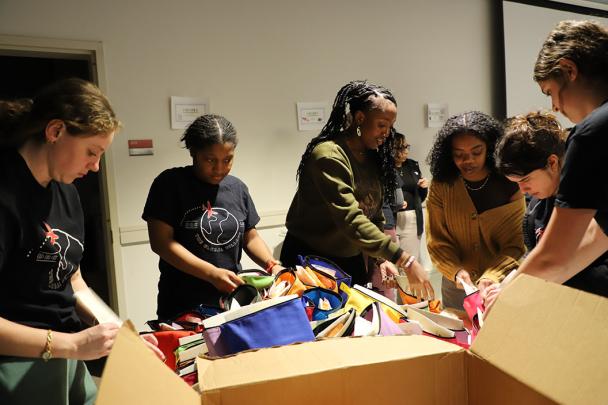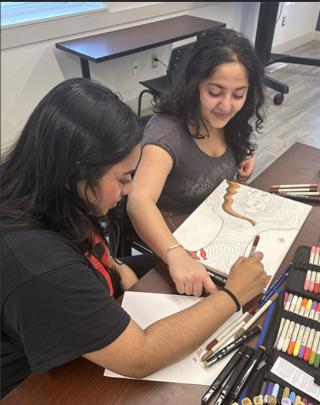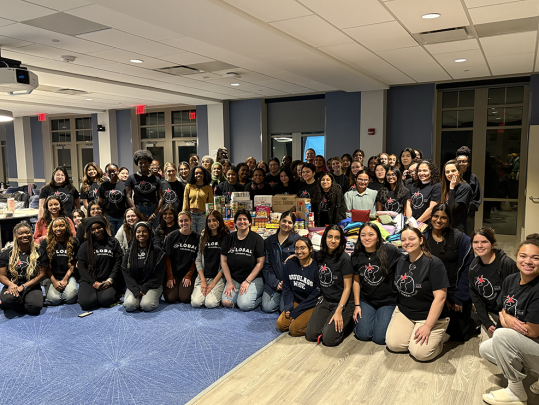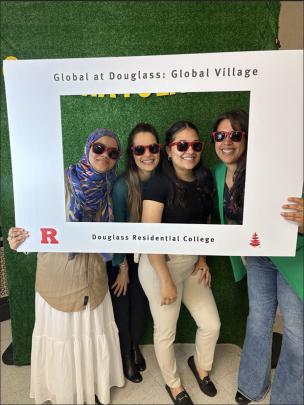Global At Douglass
Global at Douglass offers two interconnected programs: the Global Village, open to all eligible Douglass students, and Global Leaders, a competitive opportunity open to those who have successfully completed the Global Village. Both are year-long, academic living-learning communities that prepare students to become ethical leaders and global citizens. Students connect theory to practice by applying what they learn to local and global contexts through service projects and partnerships with community organizations.
About the Global Village
The Global Village Learning Communities offer a year-long experience in a themed “house” that fosters intercultural understanding, global awareness, and a strong sense of belonging among Douglass students. Open to both residents and commuters, the Global Village welcomes students from all majors who are eager to connect their academic interests with social justice, community engagement, and collaborative learning.
Students take two 1.5 credit-bearing courses—one in the Fall and one in the Spring—held on Mondays from 5:40 P.M. to 7:00 P.M. These courses combine classroom learning with hands-on service and community-based research tied to each house theme. Students are recommended to take Knowledge and Power before, or concurrently with, their Global Village course in the fall semester.
Throughout the year, students participate in local excursions, engage with community organizations in New Brunswick, and deepen their understanding of global justice issues. In the spring, each student completes a final project that is showcased at Douglass Discovery Day. Check out Douglass Global Students visiting the United Nations!
2025-2026 Houses
Learn more about the houses below! All Douglass students are welcome to join any of the houses.
-
In this course, students explore how race, gender, and identity shape public policy, lived experiences, and justice movements—locally and globally. Drawing from gender studies, sociology, and political science, students will examine how systems of power influence everything from civil rights to education to access to basic needs. Through a feminist lens, the course encourages students to think critically about how policies are created, who they serve, and how they can be challenged or reimagined.
As part of the Global Village Learning Community, students will also learn foundational research methods and engage in hands-on service learning with organizations in New Brunswick. The course offers opportunities to connect with community leaders, explore real-world advocacy efforts, and engage with cross-cutting issues that impact multiple areas of social justice. This course is ideal for students interested in social justice, law, public service, or global leadership—and those who want to take what they learn in the classroom and put it into action.
-
This course explores the urgent need for environmental justice and sustainable development through a global, feminist lens. Students examine how climate change, environmental policy, and ecological systems intersect with gender, race, and socioeconomic inequality. Topics include sustainable food systems, green infrastructure, climate migration, and the role of activism in environmental change.
As part of the Global Village Learning Community, students will learn research methods and engage in service learning that connects environmental issues to local action. The course fosters opportunities to work with community organizations, attend interactive events, and examine how environmental sustainability is tied to everyday decisions. Ideal for students interested in public health, environmental science, activism, or global sustainability work.
-
Explore how social structures, identity, and systems of power influence health outcomes across the globe. This course focuses on health equity through feminist and LGBTQ+ perspectives, with an emphasis on the experiences of historically excluded populations. Students will investigate issues such as healthcare access, reproductive justice, LGBTQ+ health, and the role of bias in medical research and practice.
Students in this Global Village house will also learn foundational research skills and engage in service learning that connects health advocacy with the needs of the New Brunswick community. The course supports students in developing real-world knowledge of social determinants of health while encouraging creativity, critical thinking, and inclusive leadership. Ideal for those interested in healthcare, public policy, social work, pre-med, or community health.
-
Rooted in the legacy of student activism at Douglass, this house honors the historical establishment of Africana as a space founded by and for Black students. The course centers the lives, experiences, and contributions of Black women, girls, and femmes across Africa and the African Diaspora. Students will engage deeply with Black feminist thought, cultural identity, and community-based resistance across time and geography.
Through research and service learning, students connect their studies to ongoing issues of racial equity, social justice, and cultural empowerment in New Brunswick and beyond. This house is ideal for students who want to explore Black identity in global contexts, engage with liberatory scholarship, and learn how education can be a tool for transformation and belonging.
-
Rooted in the legacy of student activism at Douglass, this house honors the historical establishment of La Casa as a space created by and for Latine students. The course explores what it means to be Latine and Caribbean in the U.S. and across the globe, tracing the impact of colonialism, migration, activism, and cultural identity across generations and regions.
Students will examine issues such as language, representation, family, and gendered experiences within the Latine diaspora, while developing research and writing skills that reflect their communities and interests. Service learning opportunities connect students with the broader New Brunswick community through culturally rooted engagement. This course is ideal for students interested in social justice, cultural preservation, storytelling, and advocacy work.
"My favorite Douglass memory is our Global Village excursion to New York. We visited the Museum of the City of New York and had a guided tour of New York’s history throughout the years."
- Bernice A.
Meet the Instructors:
Discover the exceptional educators guiding this year’s Global Learning Communities. Learn more about their expertise, passion for global engagement, and the unique perspectives they bring to Douglass Global programs.
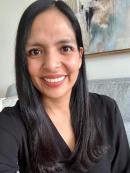
Dr. Cynthia N. Sánchez Gómez (she/hers/ella)
Dr. Cynthia N. Sánchez Gómez is a scholar-practitioner in higher education with over a decade of experience in student life, new student orientation, STEM education, and academic advising. She is an assistant dean at Rutgers’ SAS Honors Program. A proud Peruvian immigrant, her research centers on the experiences of immigrant youth, particularly undocumented college students.
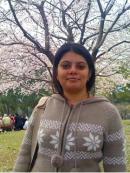
Dr. Sharanya Sethuram (she/hers)
Dr. Sharanya Sethuram is a RU Adjunct Professor teaching Environmental Sustainability. She holds a Ph.D. in Environmental Policy and Climate Change Adaptation from Ritsumeikan Asia Pacific University, Japan. Her research focuses on natural resource management, climate change adaptation, & sustainability. She has conducted postdoctoral work at UCLA on air quality and water resources.
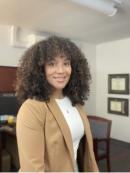
Dr. Merylou Rodríguez
Dr. Merylou Rodríguez is a first-generation scholar-practitioner with a decade of experience in higher education. Born in Elizabeth, NJ, to Puerto Rican and Dominican parents, she earned her Ph.D. at Rutgers University. Her dissertation used Boricua-centric methodologies to explore Puerto Rican undergraduate persistence. As Associate Director of Research and Assessment at Rutgers, she advocates for equity and access.
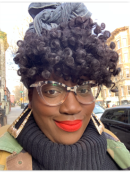
Dr. Ajua Kouadio
Dr. Ajua Kouadio is an educator, researcher, and advocate. She has spent 15 years teaching, mentoring, and transforming school culture in Harlem, working to expand opportunities for NYC youth. She holds a Bachelor's from Syracuse in Social Studies Education & African American Studies, a Master’s from Teachers College, and a Doctorate from GSE. Her research focuses on the intersections of schooling and the criminal justice system, with a focus on Black youth.
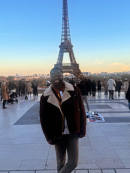
Ryan Wilkerson (he/him)
Ryan Wilkerson is a doctoral candidate in Health Education at Teachers College, Columbia University, with experience in public health and medical education. His research focuses on social network analysis and interventions for HIV/STI prevention among Black gay, bisexual, and other men who have sex with men (BGBM). He encourages students to bring their full selves into the classroom and engage with diverse topics with curiosity and care.
Accordion Content
-
- Become a Douglass student for $75 a semester - Click Here
- Complete a yearlong academic class by registering for a 1.5 credit course in the Fall and the Spring in the house you apply to
- Participate in house service-learning projects and excursions
-
- For current students, apply by January 15 of each year for priority enrollment
- For new students, apply by June 15 for priority enrollment
-
- You don’t have to major in the house theme – in fact, it’s a great way to make you a well-rounded global community member if you decide to live in a community that’s different from your major
- Commuters and transfer students are welcome
Questions?

